The diseases mentioned in the heading are related to our Nervous system. Migraine is generally found in women while others are common to both the genders
MIGRAINE/HEADACHE
The connection between diet and headache has been suspected since the time of Hippocrates. Miheadaches cause severe throbbing pain on one or both sides of the head, and may be accompanied by nausea and vomiting. Other common symptoms include sensitivity to light tingling dizziness, ringing in the ears, chills and sweating. This kind of headache often causes its sufferers to take to bed in a darkened room and can last anywhere from two hours to three days.
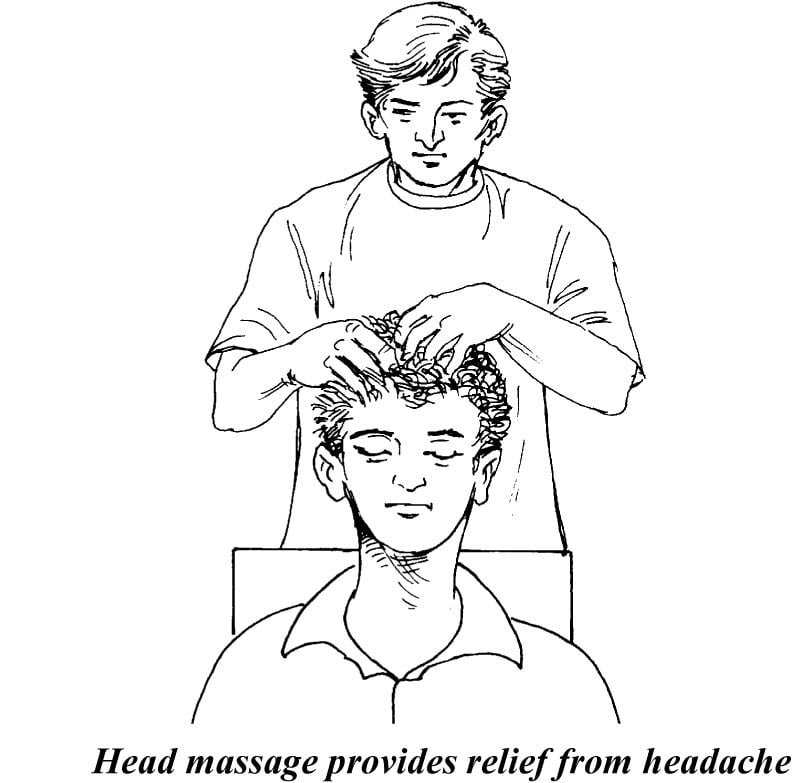
Migraines appear to be caused by the contraction and sudden dilation of the blood vessels inside the brain. In many individuals, this process can be triggered by foods. Treatment consists of identifying the offending substances that trigger the headache and eliminating them from the diet. This involves some detective work, but the results are well worth the effort.
General Recommendations
Biofeedback classes can help some people reduce the severity and length of their migraines. Feverfew, an herb, is also effective for some individuals.
Dietary Modifications
Investigate the possibility of a food allergy or food intolerance. Research indicates that food allergies may be a major cause of migraine headaches.
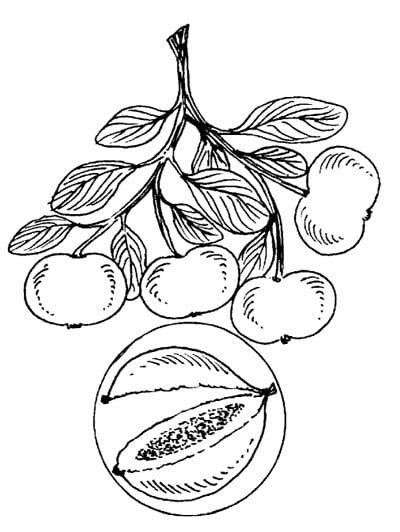
Avoid foods containing tyramine. This naturally occurring substance can cause vasodilation (widening of the blood vessels) in some individuals. It has been estimated that up to 10 percent of migraine sufferers are sensitive to tyramine. Tyramine-containing foods include all alcoholic beverages, and red wine in particular, homemade yeast breads; sour cream old cheese: red plums; figs, aged game, liver, including chicken liver; canned meats; salami; sausage; salted dried fish, pickled herring; Italian-broad beans; green bean pods, eggplant; soya sauce; and yeast concentrates, found in soup cubes, commercial gravies and meat extracts.
Avoid other foods that commonly trigger migraines. These foods include cows milk, goat’s milk, wheat; chocolate, eggs, oranges, benzoic acid, tomatoes, tartrazine (a food colouring), rye, rice, fish, oats, cane sugar, yeast, grapes, onion, soya, pork, peanuts, walnuts, beef, tea, coffee, nuts, and corn.
Eliminate sources of monosodium glutamate (MSG) from your diet. This food additive causes headaches in susceptible individuals. Used as a flavour enhancer, it is frequently found in frozen and packaged processed foods and Chinese dishes.
Discontinue the use of aspartame (NutraSweet). This sugar substitute causes severe headaches in some people.
Increase your consumption of foods that reduce platelet stickiness, such as cold-water fatty fish like mackerel, salmon, sardines and anchovies. Platelets are the blood cells that are responsible for blood clotting. Foods that inhibit bivlotting have been found to reduce migraines.
Nutrients That Help
Magnesium is a smooth-muscle relaxant.
Omega-3 fatty acids inhibit blood clotting, reducing the incidence and severity of migraines. Your best source of this nutrient is cold-water fatty fish.
Beneficial Juices
Collard greens, garlic and parsley—sources of magnesium.
Ginger root, cantaloupe and garlic—reduce platelet stickiness.


MEMORY LOSS
At one time or another, each of us has experience an unexplained loss of mental ability. Unfortunately, a decrease in memory or thinking ability is often passed off as being ‘normal’ for the older person. Nonsense, we say!
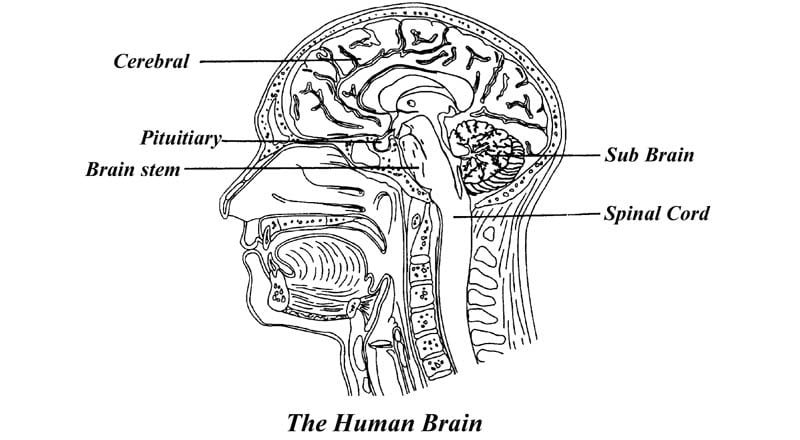
The brain is very sensitive to the health status of the body. When your body is run down, your brain is sure to follow. A nutrient-deficient diet, hormone imbalance, glandular disorder. or heavy-metal toxicity from lead or mercury can all cause memory problems. If you occasionally spend an hour searching the house for the sunglasses on your head. Try some of the ideas below. They may help to clear the fog.
General Recommendations
Stress, food allergies, and hypoglycemia can all cause ‘foggy’ thinking. Sometimes, Vitamin deficiency is to blame. Vitamin B12 is often poorly absorbed in the later years, and supplementation by injection may dramatically clear the head. If you suspect a physical disorder such as hormone imbalance or heavy-metal toxicity, consult your physician.
Dietary Modifications
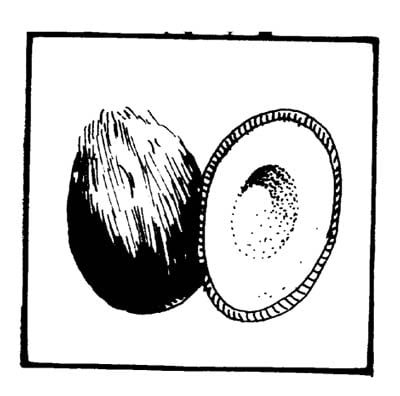
Follow the Basic Diet. This diet will help to rebuild your body and brain.
If you need to remember what you are reading, snack on a food that is high in fat. Fat stimulates the release of the neurotransmitter cholecystokinin, which may help to ‘fix’ the information in your memory. Seeds and nut butters are the best choices here because of their ‘healthful’ oil content.
Nutrients That Help
- Thiamine is often called the nerve Vitamin. Even a mild deficit of this nutrient has been linked with some impairment of brain activity. Yeast, wheat germ, and sunflower seeds are all high in thiamine.
- Riboflavin has been linked with mental ability. People with adequate amounts of this B Vitamin performed better on memory tests than did people with inadequate levels of this nutrient.
- Carotene has been linked with improved memory. People with adequate amounts of this orange pigment did better on thinking or cognitive tests than those who were only slightly deficient.
- Vitamin B12 deficiency has been linked with memory problems. Low levels of this Vitamin were associated with low scores on a test. Animal proteins are the best source of this Vitamin.
- Folate deficiency has been linked with memory problems. Low levels of this nutrient were associated with low scores on a test.
- Iron has been linked with excellent mental ability. Older adults with high iron status have shown the same brain wave activity as young adults.
- Vitamin C increases absorption of iron.
Beneficial Juices
- Collard greens, kale and parsley—sources of riboflavin.
- Carrot, kale, and cantaloupe—excellent sources of carotene.
- Asparagus, spinach and kale—sources of folate.
- Kale and parsley—good sources of iron.
- Red pepper, kale and parsley—good sources of Vitamin C.

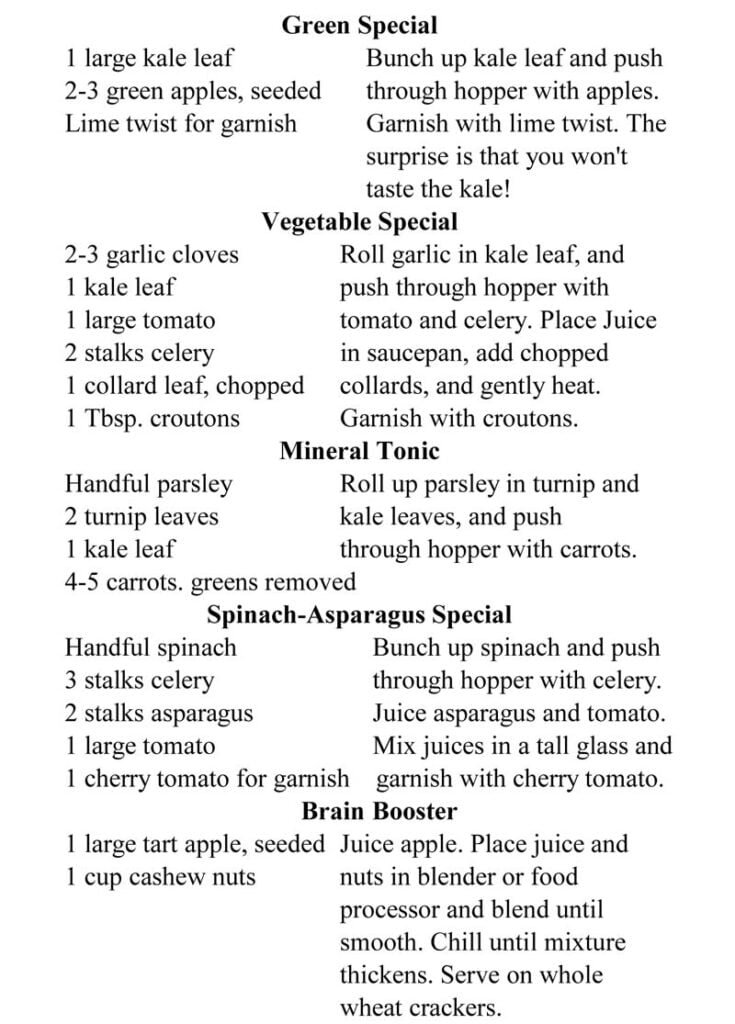
Stress
Stress has been called the wear and tear of life. It can be caused by many things—financial problems, illness, relationships, a high-pressure job and loneliness. Stress is a highly personal reaction something that invigorates one person may stress another. This disorder causes fight-or-flight hormones to flood the body.
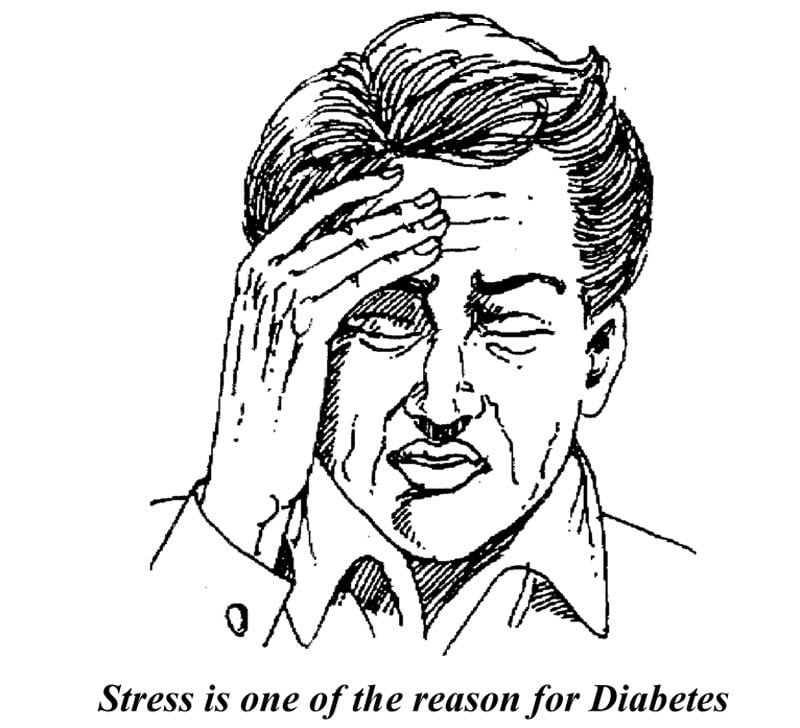
If the stress is prolonged, it can cause decreased energy, impaired resistance to infection, and a host of physical complaints such as headaches, gastrointestinal problems, high blood pressure, dizziness and loss of appetite. Treatment consists of identifying and reducing the triggers of stress and replenishing the nutrients expended in the stress response.
General Recommendations
Take the time to identify the major sources of stress in your life and discover coping mechanisms for the stresses you cannot avoid. Practice relaxation techniques. Get a good night’s sleep, and get into the habit of deep breathing. Physical exercise in the form of walicing is also a great stress reliever. Hobbies, too, can be good outlets for pent-up energies resulting from stress.
Dietary Modifications
- Increase your consumption of fiber. Stress increases cholesterol levels; fibre decreases cholesterol absorption.
- Decrease your consumption of sugar. Sugar puts more stress on your immune system by depleting chromium and depressing white blood cell action.
- Increase your consumption of foods that thin the blood, such its ginger, garlic, and cantaloupe.
- Avoid caffeine, alcohol, and drugs. Although these substances may offer temporary relief, in the long run, they can actually make stress worse.
Nutrients That Help
- Pantothenic acid is lost during the stress reaction and must be replenished.
- Vitamin C is lost during the stress reaction and must be replenished. This nutrient is also an antioxidant, and so helps protect the body during stress reactions.
- Zinc is lost during the stress reaction and must be replenished.
- Magnesium is lost during the stress reaction and must be replenished.
- Potassium is lost during the stress reaction and must be replenished.
- Chromium is lost during the stress reaction and must be replenished. Brewer’s yeast is a good source of chromium.
- Beta-carotene is an antioxidant, and so helps protect the body during stress reactions.
- B-complex Vitamins are known as antistress Vitamins. See your doctor about B-Vitamin supplements.
Beneficial Juices
- Broccoli and kale—sources of pantothenic acid.
- Red pepper, kale, and collard greens—sources of Vitamin C.
- Ginger, parsley, and carrot—sources of zinc.
- Collard greens and parsley—excellent sources of magnesium.
- Parsley, Swiss chard, and spinach—sources of potassium.
- Carrot, collard greens, and parsley—excellent sources of beta-carotene.
- Garlic, cantaloupe, and ginger—sources of blood-thinning compounds.

Depression
Depression is a mental state characterized by extreme feelings of dejection, sadness and emptiness. Symptoms can include poor appetite accompanied by inadequate diet and weight loss, or increased appetite with weight gain; insomnia or excess sleep; changes in usual activities; loss of interest; fatigue; loss of concentration, feelings of worthlessness or inappropriate guilt and thoughts of suicide or death. In certain cases, depression is appropriate to a life event.

To be diagnosed as depression, the depressed state (including at least four of these symptoms) must be experienced for at least one month and should be defined as inappropriate to life’s events. The causes of depression are categorized as psychological, sociological, biochemical or physiological. Specifically, they can include an overreaction to life’s events or to stress, lack of sunlight during winter months (seasonal affective disorder), nutritional deficiencies, poor diet, sugar, caffeine, nicotine, thyroid and adrenal gland disorders, hormonal imbalances, allergies, environmental and microbial factors or any serious physical disorder.
General Recommendations
Studies have found that choline (an amine found in plant and animal tissues) levels are extremely high in depressed patients. An abnormality in choline transport may be involved in this disease. It is one instance in which biochemical imbalances may be the cause of depression. Good nutrition is a vital adjunct to appropriate psychiatric care.
Exercise is also a valuable component of depression therapy. Exercise alone has effected tremendous improvements in mood and stress management. A current study has shown decreased depression with increased physical activity.
And laugh! The old adage ‘Laughter is the best medicine’ Is as true today as when it was coined. Rent some funny movies. Look for humor in your day. Keep a positive outlook. Start smiling more. External behaviour is eventually internalized.
Dietary Modifications
Eat plenty of high-quality protein, found in fish, turkey, and legumes (beans, lentils, and split peas). Proteins containing essential fatty acids that Increase alertness are recommended; these are found in salmon and white fish. Inadequate protein consumption may lower the body’s levels of iron, thiamin, riboflavin, niacin, and Vitamins B6 and B 12; increase your intake of foods that contain these nutrients. Also increase consumption of calcium-rich foods, such as greens, corn tortillas with lime added, almonds, sunflower seeds and low-fat yogurt. Emotional stress lowers levels of nitrogen (found in protein) and calcium.
If you are taking a monoamine oxidase-inhibiting antidepressant drug (such as Nardil, Marplan, and Parnate, among others) restrict dgramine-containing foods. These foods include aged cheese, beer, red wine, ale, pickled herring, chicken liver, broad bean pods, canned figs, sausage, salami, pepperoni, commercial gravies, ripe avocado, fermented soy sauce, ripe banana, yeast concentrates, and pickled or smoked fish. Spoiled, overripe, and aged products should also be avoided.
Avoid saturated fats. Fats can inhibit the synthesis of neurotransmitters in the brain in that they cause the blood cells to clump together, resulting in poor circulation to the brain.
Avoid caffeine and sugar. Research has indicated that some individuals experience a tremendous lift after eliminating the consumption of sweets. In addition, some individuals experience an improvement in mood after eliminating caffeine.
Increase your consumption of tryptophan-rich foods. Tryptophan is the amino acid essentially responsible for the production of serotonin, the brain substance responsible for mood elevation and normal sleep. The transport of tryptophan to the brain may be inhibited in depressed individuals. Tryptophan vies with other amino acids for entry into the brain and other amino acids are usually in larger quantity in a protein-rich meal. But a carbohydrate-rich meal has been shown to help the body’s ability to absorb tryptophan. An example of a good combination is a turkey sandwitch on whole grain bread. Turkey is high in tryptophan and whole grain bread supplies ample complex carbohydrates. Milk, bananas, figs, and dates are other sources of tryptophan.
Increase, your consumption of raw fruits and vegetables and their juices and of legumes and whole grains. These foods are high in complex carbohydrates, which can stimulate the production of brain serotonin.
Nutrients That Help
- Biotin deficiency may cause depression. This nutrient is abundant in soybeans, whole wheat flour and rice bran.
- Folic acid deficiency may cause depression.
- Vitamin B1 deficiency can be caused by the use of monoamine oxidase-inhibiting antidepressants.
- Riboflavin deficiency has been associated with depression.
- Thiamine deficiency is common in depression.
- Vitamin B12 deficiency may cause depression. See your doctor about supplementation.
- Vitamin C deficiency has been associated with depression.
- Calcium supplementation may be especially effective for the elderly and in postmenopausal and postpartal depression.
- Iron deficiency has been associated with depression.
- Magnesium deficiency has been associated with depression.
- Potassium deficiency has been associated with depression.
- Omega-6 fatty acids, abundant in evening primrose oil, may be deficient in depression.
Beneficial Juices
- Spinach, kale, beet, and broccoli—sources of folic acid.
- Kale, spinach, turnip greens and sweet pepper—sources of Vitamin B6.
- Kale, parsley, broccoli, and beet greens—sources of riboflavin.
- Garlic—a source of thiamin.
- Kale, parsley, green pepper, and broccoli—sources of Vitamin C.
- Kale, parsley, broccoli, and spinach—sources of calcium.
- Parsley, beet greens, dandelion greens, and spinach—sources of iron.
- Beet greens, spinach, parsley, and garlic—sources of magnesium.
- Parsley, garlic, spinach, and carrot—sources of potassium.



